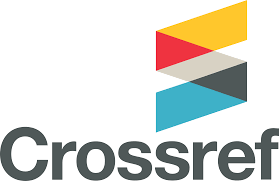Abstract
Research Aims: This study aimed to analyze the effect of workforce agility on innovative behavior, the effect of digital literacy and psychological conditions on workforce agility, and the role of digital literacy and psychological conditions as moderator variabels on the relationship between workforce agility and innovative behavior. Design/methodology/approach: The type of data collected was primary data using an online questionnaire. The sampling method was purposive sampling technique. The collected data were then processed and analyzed using SEM-PLS. Research Findings: The results of this study indicated that workforce agility had a positive effect on innovative behavior. Digital literacy and psychological conditions also had positive effect on workforce agility. However, only psychological conditions had a moderating effect on the relationship between workforce agility and innovative behavior. Theoretical Contribution/Originality: The results of this study illustrates how workforce agility affects innovative behavior. The use of digital technology through good digital literacy will further encourage the creation of industrial innovations. Managerial Implication in the South East Asian context: Organisations should build massive collaboration among various industry players in all sectors, by encouraging workforce agility in order to create industrial innovations. Research limitation & implications: This study has uneven number of samples in each industry. Future studies can consider sampling where each industrial sector can have sufficient sample similarity so comparisons can be made.
Recommended Citation
Jannah, Syayyidah Maftuhatul
(2021)
"Developing Innovation Ecosystem between Cross-Sector Industry Players through Human Resource Quality Improvement,"
The South East Asian Journal of Management: Vol. 15:
No.
1, Article 2.
DOI: 10.21002/seam.v15i1.12270
Available at:
https://scholarhub.ui.ac.id/seam/vol15/iss1/2
Included in
Management Information Systems Commons, Management Sciences and Quantitative Methods Commons












